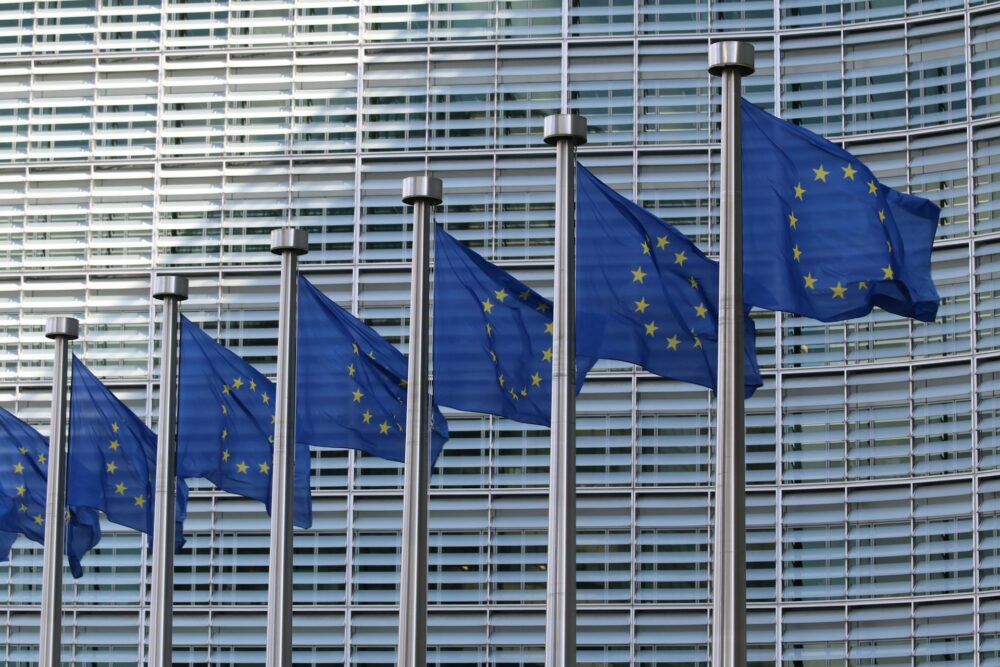Cannabis
European Commission Launches Investigation into Italy’s CBD and Hemp Flower Ban
The Italian government’s decision to ban the sale of CBD and hemp flowers has sparked a flood of complaints and concern across the European Union. The European Commission, responding to complaints from the hemp industry and politicians, has launched an investigation that could prove crucial to the future of the CBD market in Europe. The EC’s verdict will not only decide the legality of the Italian regulations, but will also affect the stability and development of the hemp industry throughout the EU.

The European Commission (EC) has launched an investigation in response to the controversial actions of the Italian government to ban the sale of CBD and hemp flowers, products that are legal in the European Union (EU).
The Italian initiative raises serious concerns about a breach of EU law, which could have far-reaching consequences for the entire hemp market in Europe. The European Commission’s investigation into this matter could prove crucial for the future of the EU’s hemp industry.
The decisions of the Italian government and their consequences
The Italian government, led by Prime Minister Giorgia Meloni, has proposed tough new regulations that aim to eliminate hemp flowers from the market altogether, even though they are legal in the EU. Often referred to as “cannabis light,” the flowers contain low levels of THC while being rich in CBD, a compound with potential health benefits without any psychoactive properties.
In September 2024, the Italian Chamber of Deputies voted to amend the Security Law, which prohibits the sale of hemp flowers. The bill is now awaiting a decision from the Senate. The introduction of these regulations would effectively mean the end of the CBD market in Italy, which has operated in accordance with EU regulations until now.
The government further tightened regulations by attempting to classify CBD as a psychotropic substance in August 2024. That decree, although suspended in September, had already caused chaos in the market and forced many manufacturers and sellers to suspend operations.
Conflict with EU law and the CJUE judgment
The key argument against the Italian government’s actions is the violation of European Union regulations on the free movement of goods and the principles of fair competition. The Canapa Sativa Italia group, representing the cannabis industry, has filed an official complaint with the European Commission, arguing that the Italian actions are contrary to EU agricultural policy and threaten the competitiveness of the market.
Moreover, in 2021, the Court of Justice of the European Union (CJUE) issued a ruling that clearly stated that hemp extracts, including CBD, cannot be classified as narcotic substances. This ruling established that CBD and hemp-derived products, such as flowers, are legal throughout the EU, meaning that member states cannot introduce laws that would prohibit their sale.
The Italian Cannabis Market and Its Importance for the EU
Italy plays a significant role in the European hemp market. The country is one of the largest producers of industrial hemp in Europe, as well as a major market for products containing CBD. A ban on the sale of hemp flowers and CBD could significantly affect not only the Italian market, but also the whole of Europe, distorting competition in the region.
One key sector that could be hit is the cosmetics and dietary supplements industry. In 2021, CBD was approved as a safe cosmetic ingredient by the Cosing database, allowing its widespread use in cosmetic products. Italy’s proposed ban could devastate this growing sector, putting hundreds of companies and thousands of jobs at risk.
European Commission investigation – possible scenarios
In response to these controversial actions, the European Commission has launched an investigation to assess whether the Italian regulations are in line with EU law. If the European Commission finds that Italy is violating the rules on the free movement of goods, the country may be forced to withdraw these restrictive regulations.
There is also the issue of the impact on the entire cannabis industry in Europe. The introduction of such strict regulations in Italy could set a precedent that other countries could imitate, which would be a huge blow to the European CBD market. However, the European Commission also has the power to block such changes if it considers them to be in conflict with EU law.
Reaction from politicians and industry
The European Commission investigation was welcomed by the Italian cannabis industry and opposition politicians. Valentina Palmisano, an Italian MEP, strongly condemned the Meloni government’s actions, stressing that the ban on hemp flowers and CBD is contrary to both the CJUE judgment and EU regulations on the legal trade in hemp products. In her opinion, the ban puts “cannabis light” on a par with drugs, which is a fundamental mistake and an unjustified step backwards.
The cosmetics and dietary supplements industries are also watching the situation with concern. CBD-containing products have become extremely popular throughout Europe, and their ban in Italy could create trade barriers and limit consumers’ access to legal, safe products.
__
(Featured image by Guillame Perigois via Unsplash)
DISCLAIMER: This article was written by a third party contributor and does not reflect the opinion of Born2Invest, its management, staff or its associates. Please review our disclaimer for more information.
This article may include forward-looking statements. These forward-looking statements generally are identified by the words “believe,” “project,” “estimate,” “become,” “plan,” “will,” and similar expressions. These forward-looking statements involve known and unknown risks as well as uncertainties, including those discussed in the following cautionary statements and elsewhere in this article and on this site. Although the Company may believe that its expectations are based on reasonable assumptions, the actual results that the Company may achieve may differ materially from any forward-looking statements, which reflect the opinions of the management of the Company only as of the date hereof. Additionally, please make sure to read these important disclosures.
First published in FaktyKonopne. A third-party contributor translated and adapted the article from the original. In case of discrepancy, the original will prevail.
Although we made reasonable efforts to provide accurate translations, some parts may be incorrect. Born2Invest assumes no responsibility for errors, omissions or ambiguities in the translations provided on this website. Any person or entity relying on translated content does so at their own risk. Born2Invest is not responsible for losses caused by such reliance on the accuracy or reliability of translated information. If you wish to report an error or inaccuracy in the translation, we encourage you to contact us

-

 Fintech1 week ago
Fintech1 week agoFintech Alliances and AI Expand Small-Business Lending Worldwide
-

 Crypto5 days ago
Crypto5 days agoBitcoin Steady Near $68K as ETF Outflows and Institutional Moves Shape Crypto Markets
-

 Fintech2 weeks ago
Fintech2 weeks agoDruo Doubles Processed Volume and Targets Global Expansion by 2026
-

 Business10 hours ago
Business10 hours agoDow Jones Stalls Near Record Highs as Inflation-Fueled Rally Awaits Next Move
























